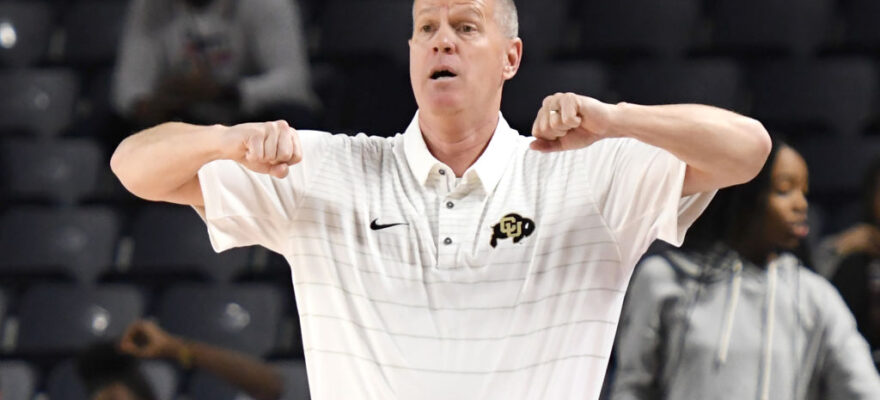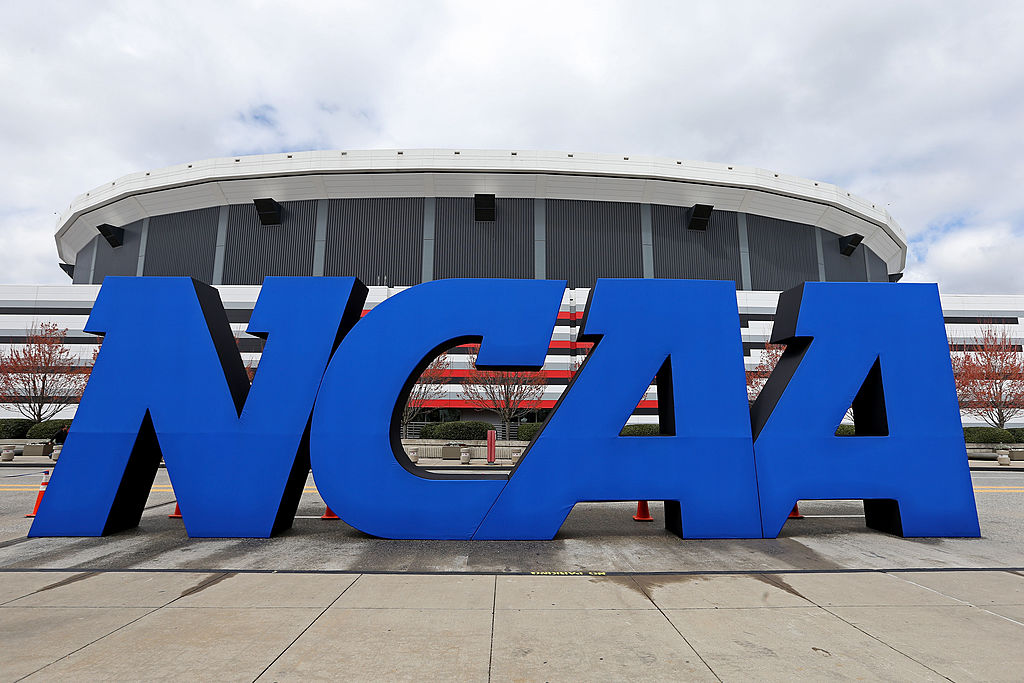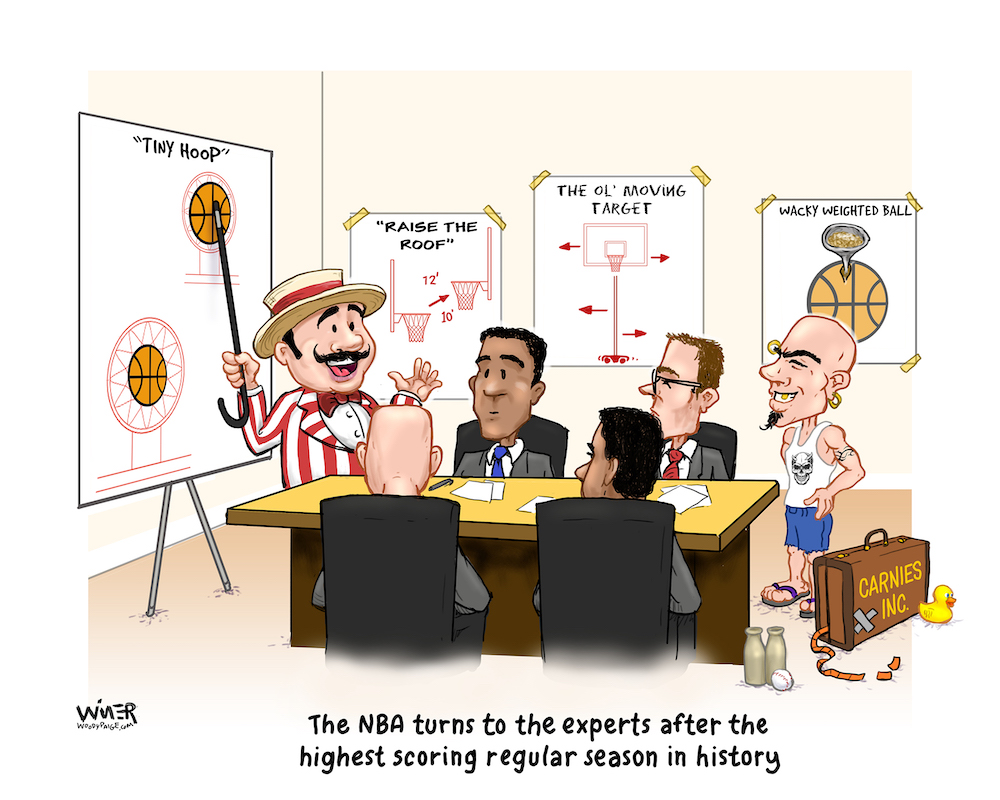In a press conference held Wednesday morning, University of Colorado head coaches shared their reactions to the Pac-12’s decision to postpone athletics until 2021 and their plans moving forward. Athletic Director Rick George opened with sentiments that would be echoed throughout the morning.
“The first priority is that we look at the health and safety of our student athletes and while it was a difficult decision, I feel it was the right decision,” George explained.
The truth is, the plan is to protect athletes, follow the advice of medical professionals and stay positive, beyond that, there is no plan (yet).
Do Rick George and Karl Dorrell really believe a spring season will be played? The answer is yes, but how they will achieve this is still among the many unknowns looming over the future of collegiate sports.

Considering that the Pac-12 is only one of two conferences in the Power Five to postpone the season, the future of stars like K.D Nixon and Nate Landman may not be at CU. Though no players have made any moves yet, Dorrell pointed out that player poaching and personal decisions to transfer are always a possibility. Currently, his goal is to support the career of each individual and his door is open to discuss any concerns players may have, but he could not speak to the genuine likelihood of any transfers.
If you were hoping for the Buffs to make a Big-12 or SEC appearance, you’re going to have to put those dreams on hold, at least until the next conference realignment. For now, CU will be sticking with the Pac-12 and its medically advised postponement of 2020 competition.
Upside: George believes “spring ball in the fall” is a possibility, it lacks competition but hey, at the end of the day it’s still an opportunity to watch Colorado Football.
Creating a regional conference? The answer is also no, in the wise words of Rick George: “If we’re saying we’re not going to play because of some of the uncertainty, that’s not going to change by playing somebody else in another league, a few games here and there.”
It’s no secret that the push for college sports, especially football, is in large part driven by the need for sports revenue to support the university, staff, local community and other sports. NCAA Finances reported that University of Colorado’s athletic department revenue exceeded $94 million in the 2018-2019 season, along with Big-12 and SEC schools like Texas and Texas A&M bringing in close to $220 million and expenses often exceeding revenue. (Just another reason daily testing or a “bubble” atmosphere is not feasible for universities.)

So how will CU survive without the extra revenue? They will be tightening their purse strings, but not too much. While furloughs and layoffs are a definite possibility, all sports and student-athlete support programs are 100% safe.
In July, the Pac-12 announced that it would play a 10-game schedule consisting of only conference matchups. According to George, this prompted the university to budget for little to no fans and a 10-game season, so as long as the spring features at least 10 games, CU will make it through the 2020-2021 season somewhat unscathed.
Similar to many Buffs fans, Men’s Basketball Head Coach Tad Boyle who spoke for a brief moment, was in a state of “shock and disbelief” that basketball, a winter sport, was suddenly introduced to the postponement conversation.
“I don’t understand the decision WHEN we made the decision. If that decision has to be made some time in September or October, I get it. I don’t understand why it was made in August.”
Although CU does not have the means to recreate the ‘bubble’, Boyle noted that in the weeks following Thanksgiving, the rest of the student population will not return to school, making Pac-12 campuses the safest place for basketball players to be. Markedly, eleven players have been at the CU campus since June 7th and there has yet to be a positive COVID-19 case.
CU Women’s Soccer Coach Danny Sanchez also has a lot of decisions to make, including how to advise seniors in deciding between the pro’s and their senior soccer season. Sanchez said it all depends on when the season ends, with the NWSL and European leagues soccer players have more pro options than other sports and the seasons could line up perfectly. Sanchez also pointed out that the NWSL is aware that Pac-12 and ACC players are their “bread and butter” and could potentially allow players to show up late, a common occurrence already.
Sanchez is awaiting guidance from the Pac-12 before formulating a workout and practice regimen, but the girls are excited and ready to play in any capacity possible.
After months of discussions and mental preparation for a modified season, Women’s Volleyball Coach Jesse Mahoney and his players felt a sense of relief following the Pac-12’s decision. As an extremely competitive team, the concept of a shortened season or conference only play didn’t allow for a well-rounded season. Players were happy to learn that not only do they have an extra few months to prepare; it will be for a meaningful and competitive season.
Although there will be plenty of obstacles to overcome regarding multiple sports in the same season, court time will not be one of them. Coors Event Center at CU where Men’s Basketball, Women’s Basketball and Women’s Volleyball practice happens to have three courts. Managing the extra staff and players in the building will be an interesting operation to see unfold.
Head Women’s Basketball Coach JR Payne confirmed Tad Boyle’s confusion given that the Pac-12 had not informed them of the possibility for Basketball to be included until the day before the decision was made. However, she feels strongly that the medical protocols are giving teams their greatest chance of playing.
Earlier this summer, Payne’s main concern was getting her overseas players back to Boulder, Zuzanna Kulinska and Charlotte Whittaker have now been in Boulder for over a month and incoming freshman Frida Formann will arrive from Denmark in time for classes beginning August 24th.
Payne is dedicated to staying positive and focusing on what the team can control, spending as much time with players as possible and preparing her team to play a full schedule. If the remaining Power Five conferences choose to play in November, the Buffs will most likely see a condensed schedule and the possibility of picking up more regional games.
Payne’s left us with words of wisdom that put a coaches spin on the mindset that everyone, not just athletes, should try to implement as we continue to strive for normalcy and solace in the midst of a global pandemic.
“I talk about finding the blessing in the storm and we’re certainly in stormy times. We have to find a way, we have to make a choice to find the positive in the day, find a way to move forward, find a way to encourage our student-athletes to be the best they can be.”
Going forward, student-athlete leadership groups will be working with Pac-12 coaches and Pac-12 officials to make decisions regarding the safety protocols and proceedings of each individual athletic season.
As for what student-athletes will be doing this fall, that remains to be seen. Until a legitimate plan is devised, CU simply hopes to normalize their routine to the best of its abilities. Holding training camps is unlikely but athletes will participate in regular team meetings and interactions with coaches.
More information is expected in the coming weeks.
More from The Woody Paige Sports Network:
- Target these NFL regular season win totals with confidence in 2020
- Complete scrubbing of NFL exhibition season makes it even tougher to beat the odds
- Woody Paige: That time I played blackjack with Michael Jordan in Monte Carlo
- Woody Paige: The Chargers need to move back to San Diego (VIDEO)
- Why the Rockies should make Jon Gray their new closer

















